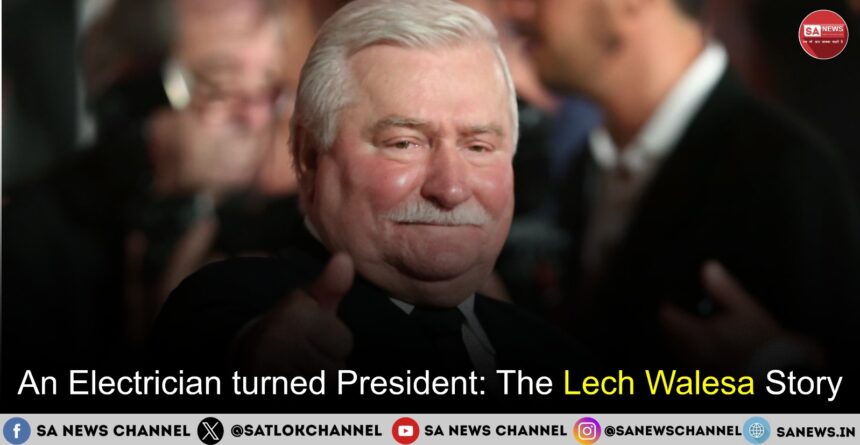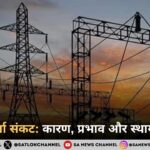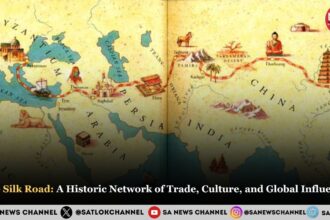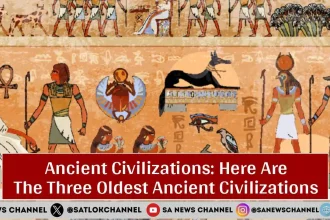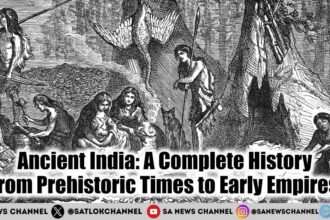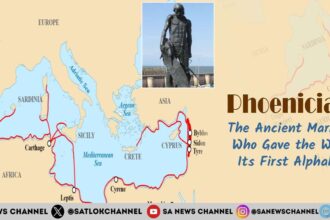Lech Wałęsa is a true story of a courageous and resilient life, transitioning from being a simple electrician to an iconic symbol of freedom and democracy. Born in 1943, Wałęsa worked as an electrician at the Lenin Shipyard in Gdańsk, Poland. At the shipyard, Wałęsa saw firsthand the suffering and injustice workers were forced to endure under the oppressive communist regime. Wałęsa’s leadership blossomed amid the 1980 strikes when he became the leader of the Solidarity movement, the Eastern Bloc’s first independent trade union.
- Early Life and Background
- Entry into Activism
- Lech Wałęsa’s Early Struggles: Detainment, Job loss and Road to Solidarity
- The Rise of Solidarity
- Poland’s Journey to Democracy
- Presidency and Political Impact
- Walesa’s Global Influence
- Founding of Lech Walesa Institute
- Satlok is the Place of no Discrimination
Wałęsa braved a government hell-bent on silencing him, suffering firings, arrests, and being interned, but staunchly defended non-violent resistance to the communist police state. His non-violent resistance led to the Nobel Peace Prize being awarded to Wałęsa in 1983, for his fight for human rights and peaceful transformation. When elected in 1990 as Poland’s first freely elected president, Wałęsa led Poland through its democracy-forming transitional phase away from communism, securing bonds for the future of Poland and coalescing human, cultural, and civil rights movements globally.
Early Life and Background
Born on September 29, 1943, in Popowo, Poland, during the Nazi occupation, Lech Wałęsa was the youngest child of his parents. His father, Bolesław, was a carpenter, and his mother, Feliksa, managed her children. Lech’s father, Bolesław, died when he was just eighteen months old. He died due to illness and exhaustion after working as a forced labourer in World War II. Following his father’s death, Lech’s mother was the only person who played an important role in shaping Wałęsa’s resilience and beliefs.
Wałęsa’s upbringing in a poor peasant family led him to face early hardships. He lived with several other siblings in a rural community. After graduating from a vocational school, Wałęsa moved to Gdańsk in 1967, where he started to work as an electrician at the Gdańsk Shipyard, then known as the Lenin Shipyard.
Entry into Activism
Lech Wałęsa’s entry into activism started in the 1970s with the famous 1970 protest, which began on December 14. With this protest, Wałęsa started to raise his voice for the rights and social justice of Polish workers. Working as an electrician at the Gdańsk Shipyard, Lech Wałęsa witnessed the harsh realities of communist rule and the poor labour conditions, which stimulated him to increase his involvement in union activities.
In response to this, thousands marched through the streets, many of whom were students and citizens. But the authorities responded with overwhelming force and used tanks, armored vehicles, and militia to suppress the protestors. When the protestors tried to leave the factory, the security forces opened fire, leaving 40 dead and 1,200 wounded, though the official number was hidden from the public.
Lech Wałęsa’s Early Struggles: Detainment, Job loss and Road to Solidarity
After the crackdown, Wałęsa faced constant harassment; he was detained multiple times, lost his job as an electrician in 1976, struggled to find work, and was under constant surveillance by the secret Polish police. Even after facing these hardships, Wałęsa’s resilience and commitment were unwavering. He was constantly involved with underground unions, leafleting, and supporting workers in times of adversity. Wałęsa also led the June 1976 protest, which was organised in response to the high food prices imposed by the government. This protest was again followed by a harsh crackdown by the security forces and political fallout. Wałęsa’s commitment and perseverance to help the labourers paved the way for his historic formation of the Solidarity movement in 1980.
The Rise of Solidarity
The Workers’ Defense Committee (KOR) was formed in September 1976 by dissident intellectuals to support striking workers and their families after the June 1976 protests, especially in response to the government’s harsh crackdown on demonstrations triggered by increased food prices. This committee provided legal aid, financial support, and helped circulate information through underground networks. It marked the first major organized resistance against communist repression in Poland and laid the foundation for later broader opposition movements.
When mass strikes erupted in 1980 over rising food prices, starting with about 17,000 workers at the Lenin Shipyard in Gdańsk led by electrician Lech Wałęsa, the movement had matured into a coordinated effort. Workers formed the Interfactory Strike Committee and presented the government with 21 demands, including rights to form independent trade unions and civil liberties. This led to the signing of the August Agreements on August 31, 1980, legalizing independent trade unions and enabling the formal registration of Solidarity by November 1980.
Also Read: Hellen Keller’s Journey from Darkness to Light
By early 1981, Solidarity had grown to about 10 million members, encompassing much of Poland’s working-age population and functioning as a broad, non-violent social movement advocating political reform, workers’ rights, and civil freedoms. Despite the imposition of martial law and government crackdowns later in 1981, Solidarity persisted underground, significantly influencing Poland’s eventual path to democracy.
Poland’s Journey to Democracy
Following the crackdown of 1981 after the imposition of martial law, the economic conditions and increased public pressure forced the communist government to negotiate with the opposition. In response to this, the historic Roundtable Talks in early 1989 resulted in the semi- free elections, in which Solidarity achieved an outstanding victory.
This marked the end of the communist rule in Poland. In 1990, Lech Wałęsa was elected the first non- communist President of Poland, which was a symbol of the end of the old regime and Poland’s rise as a modern democratic state. Solidarity’s non-violent struggle not only paved the way for the democracy of Poland but also influenced democratic movements through Eastern Europe.
Presidency and Political Impact
Lech Wałęsa’s presidency stabilized Poland and integrated the country into the global community. His leadership helped Poland deal with the challenges of post-communist transformation. Though his term saw several political divisions and debates over reform tactics, Wałęsa’s presidency had a lasting impact on Poland’s democratic foundation and the country’s emergence as a modern European state.
Walesa’s Global Influence
Wałęsa’s Solidarity movement not only brought him prominence in Europe but also globally. His legacy of non-violent struggle to uproot old regimes inspires movements for democracy and freedom across the world. Wałęsa became a symbol of moral leadership and determination, motivating activists in Latin America, Eastern Europe, and Asia to strive for non-violent change.
Founding of Lech Walesa Institute
In 1995, Wałęsa founded the Lech Wałęsa institute with an aim to promote the values of democracy, human rights and freedom which define the life and works of Wałęsa. This institute works as a platform for civic education, historic preservation as well as global dialogue on democratic development.
Through research, global partnerships and principles of solidarity, the institute continues to inspire the principles of solidarity and peaceful cooperation.
Satlok is the Place of no Discrimination
On this Earth, there is always discrimination on the basis of caste, creed, gender, etc. Several governments have worked for social equality in their countries but have been unable to bring true social equality.
True equality for all beings is only possible in Satlok, which is the eternal home for all souls. In Satlok, all souls get equal facilities whether it’s shelter, food, clothes, or body. In Satlok, Supreme God Kabir Saheb resides with his beloved souls.
All the souls in this kaal lok have come from Satlok due to the mistakes they committed in Satlok. To go back to Satlok, all souls have to worship Eternal God Kabir Saheb. Currently, the true worship of Kabir Saheb is being provided by Saint Rampal Ji Maharaj. All are requested to take initiation from Saint Rampal Ji Maharaj to attain salvation.


